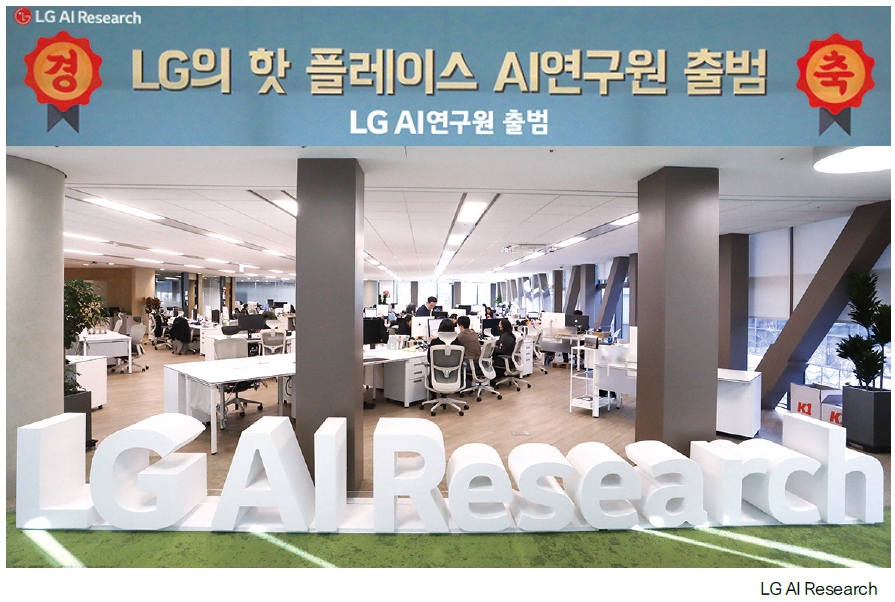Article at a GlanceThe main features of LG Group's AI strategy are as follows.
1. The group created a group-wide AI organization. This organization secures high-level, cutting-edge AI core technologies while handling complex challenges that individual subsidiaries cannot resolve.
2. The group established an organic leadership collaboration framework between the group and its subsidiaries. It established a process to identify AI initiatives and shared company-wide the know-how from successful cases where subsidiary problems were solved through AI.
3. Believing that the success of AI projects hinges on problem definition, the group developed AI consultants who combine field experience with AI expertise.
4. By providing an agile research environment optimized for AI talent, along with independent personnel and compensation systems, the group motivated AI professionals.
5. Top leadership supported AI-driven innovation and provided strong drive for its implementation.

The year 2021 marked the first year when LG Group's AI (artificial intelligence) strategy, pursued over the previous two years, began to blossom. In June 2020, the LG Sciencepark AI Task Force participated for the first time as a joint research team with the University of Toronto in the "Continual Learning" technology competition organized by CVPR (IEEE Conference on Computer Vision and Pattern Recognition), the world's most prestigious international conference in computer vision, and won first place overall. It placed first in all three assigned problems, beating a total of 79 teams including Amazon and the University of Tokyo. In July of the same year, it also ranked first in the Korean AI machine reading comprehension (MRC) evaluation. The language model developed by the AI Task Force scored 95.39 points, far surpassing the human score of 91.2 points on the same comprehension test. This was the first time that LG Group's AI capabilities had been publicly recognized at the group level.
However, no matter how advanced the latest AI technology may be, it is meaningless if it is not properly utilized in business operations and, furthermore, does not contribute to creating customer value. LG did not stop at presenting AI technologies developed through its research to academic conferences or competitions. It combined its proprietary core technologies with various external AI technologies to solve the diverse challenges faced by its subsidiaries within LG Group. As a result, in 2020, LG succeeded in using AI technology to resolve various challenges within LG Group, such as discovering new drug candidates at LG Chem, innovating battery manufacturing processes at LG Energy Solution, and analyzing patent literature in the component field at LG Innotek.
Having secured core AI technologies and succeeded in creating cases that connected them to tangible business value, LG officially launched a group-level AI-dedicated organization, LG AI Research, in December 2020. Based on the best practices accumulated thus far, it decided to expand AI utilization across all subsidiaries. Sixteen subsidiaries, including electronics, display, chemicals, U+ (Uplus), and CNS, agreed to invest more than 200 billion KRW over three years. The head of LG AI Research was Bae Kyung-hoon, the executive director who had led the AI Task Force, and Honglak Lee, a professor at the University of Michigan in the United States, a leading authority in deep learning who was selected as one of the world's top 10 AI researchers and previously worked as a research scientist at Google Brain, was invited as Chief AI Scientist (CSAI). LG AI Research was the first AI think tank led by an AI expert in their 40s to be established under a major Korean conglomerate.
Copyright Ⓒ 동아비즈니스리뷰. All rights reserved. 무단 전재, 재배포 및 AI학습 이용 금지


 경제·경영 질문은
경제·경영 질문은